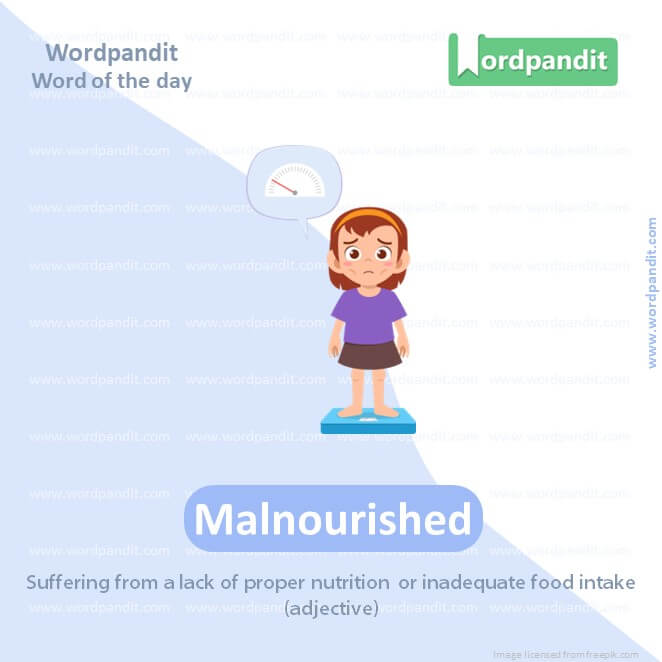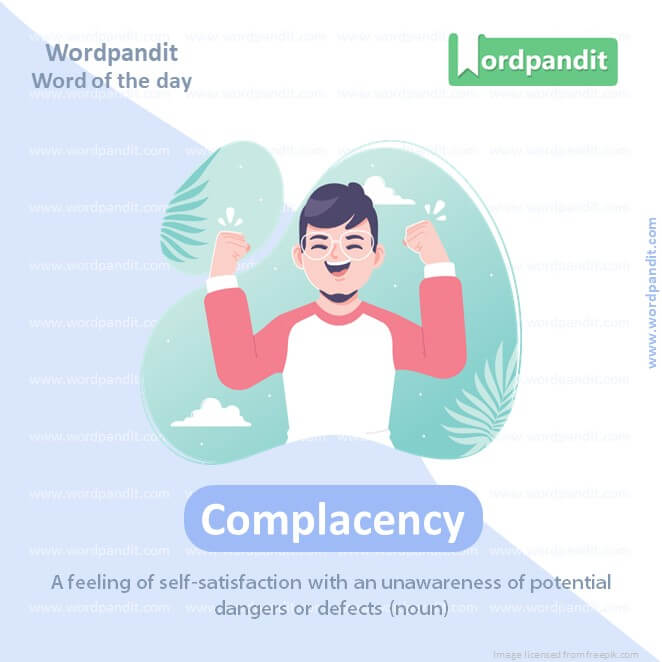Daily Vocabulary Words: List of Daily Used Words in Leading Indian Newspapers
Hi there. Welcome to this special section @ Wordpandit. Our endeavour here is straightforward: highlighting daily vocabulary words that you would come across in leading newspapers in the country. We have included the following newspapers in our selection:
• The Times of India
• The Economic Times
• Hindustan Times
• Mint
• Indian Express
We are putting in extensive work to develop your vocabulary. All you have to do is be regular with this section and check out this post daily. This is your repository of commonly used words; essentially, we are posting a list of daily used words. Hence, this has significant practical application as it teaches you words that are commonly used in leading publications mentioned above.
Visit the website daily to learn words from leading Indian newspapers.
WORD-1: Precision
CONTEXT: Drips, sprinklers, and protected cultivation as part of precision agriculture will have to be adopted at a much larger scale than today.
SOURCE: Indian express
EXPLANATORY PARAGRAPH: Imagine using a ruler to measure something very carefully, like making sure a puzzle piece fits perfectly. That level of exactness and accuracy is what “precision” means—doing something with great attention to detail and getting it exactly right.
MEANING: Exactness and accuracy in doing something, often with great attention to detail (noun).
PRONUNCIATION: pri-SIZH-uhn
SYNONYMS: accuracy, exactness, correctness, meticulousness, thoroughness, precision
USAGE EXAMPLE:
1. The watchmaker assembled the tiny parts with precision.
2. Her precision in solving mathematical problems impressed her teacher.
3. The surgeon performed the delicate procedure with precision.
4. The architect’s plans were executed with precision to ensure structural stability.

WORD-2: Inherited
CONTEXT: Many of our laws are those we inherited from the British in 1947.
SOURCE: Indian express
EXPLANATORY PARAGRAPH: Imagine receiving a special family heirloom, like a ring or a painting, from your grandparents. That item is something they pass down to you because it belonged to them first. “Inherited” means receiving something from someone who passed it down to you, usually as part of a family tradition.
MEANING: Received from someone who passed it down, especially as part of a family tradition (adjective).
PRONUNCIATION: in-HER-i-tid
SYNONYMS: received, bequeathed, passed down, handed down, hereditary, inherited
USAGE EXAMPLE:
1. She inherited her grandmother’s antique jewelry collection.
2. The prince inherited the throne from his father.
3. He inherited his father’s business after his retirement.
4. The historical estate was inherited by distant relatives.

WORD-3: Fortified
CONTEXT: Rice is our first crop, and most of those children who are malnourished today consume a lot of rice. This needs to be fortified with high nutrition.
SOURCE: Indian express
EXPLANATORY PARAGRAPH: Imagine building a castle with thick walls, strong gates, and guards to protect it. That’s what “fortified” means—making something stronger and more secure, especially against attacks or dangers.
MEANING: Strengthened or protected against attack (adjective).
PRONUNCIATION: FAWR-tuh-fahyd
SYNONYMS: strengthened, reinforced, secured, protected, defended, fortified
USAGE EXAMPLE:
1. The city walls were fortified to withstand enemy sieges.
2. She fortified her immune system by taking vitamins regularly.
3. The company’s cybersecurity measures were fortified after a data breach.
4. The friendship was fortified by years of shared experiences.

WORD-4: Malnourished
CONTEXT: Rice is our first crop, and most of those children who are malnourished today consume a lot of rice. This needs to be fortified with high nutrition.
SOURCE: Indian express
EXPLANATORY PARAGRAPH: Imagine not having enough healthy food to eat, leading to weakness and poor health. When someone is “malnourished,” it means they don’t get enough nutrients and vitamins from their diet, which can affect their growth and well-being.
MEANING: Suffering from a lack of proper nutrition or inadequate food intake (adjective).
PRONUNCIATION: mal-NOO-rishd
SYNONYMS: undernourished, starved, deprived, malnourished, nutrient-deficient, poorly nourished
USAGE EXAMPLE:
1. The children in the refugee camp were malnourished and in need of medical attention.
2. The doctor identified the signs of malnourishment in the patient’s physical exam.
3. The malnourished stray animals were taken in and given proper care.
4. The charity provided meals to malnourished families in the impoverished region.

WORD-5: Introspection
CONTEXT: In the life of a nation, there are times when there is a need for collective introspection on the past and to strategize on the future.
SOURCE: Indian express
EXPLANATORY PARAGRAPH: Imagine sitting quietly and thinking about your thoughts, feelings, and actions. That self-reflection and examination of your own thoughts and emotions are what “introspection” means—looking inward to understand oneself better.
MEANING: The examination of one’s own thoughts and feelings (noun).
PRONUNCIATION: in-truh-SPEK-shuhn
SYNONYMS: self-examination, reflection, contemplation, self-analysis, self-awareness, introspection
USAGE EXAMPLE:
1. Meditation often involves moments of introspection and self-awareness.
2. She used journaling as a tool for introspection and personal growth.
3. After the breakup, he spent time in introspection to understand his emotions.
4. Introspection is key to developing emotional intelligence.
WORD-6: Consciousness
CONTEXT: The political leadership has to realise the shift in the Dalit consciousness: Politics can no longer be about sharing a meal for a photo-op.
SOURCE: Indian Express
EXPLANATORY PARAGRAPH: Imagine waking up in the morning and being aware of yourself, your surroundings, and your thoughts. That awareness and state of being awake and aware is what “consciousness” means—being aware of your own existence and experiences.
MEANING: The state of being awake, aware of oneself, and aware of one’s surroundings and experiences (noun).
PRONUNCIATION: KON-shuhs-nis
SYNONYMS: Awareness, wakefulness, mindfulness, cognizance, perception, consciousness
USAGE EXAMPLE:
1. She regained consciousness after fainting during the performance.
2. The accident caused a temporary loss of consciousness.
3. He had a moment of heightened consciousness during meditation.
4. Studies explore the nature of consciousness and its relation to the brain.
WORD-7: Flourished
CONTEXT: That even Ambedkar’s grandson had reason to complain about fair treatment in the state where his ideas flourished is a comment on our political establishment.
SOURCE: Indian Express
EXPLANATORY PARAGRAPH: Imagine planting a seed in fertile soil and giving it water and sunlight. The seed grows into a strong, healthy plant with lots of leaves and flowers. That growth and success of the plant are what “flourished” means—growing and thriving in a favorable environment.
MEANING: Grew and developed successfully, especially in a favorable environment (verb).
PRONUNCIATION: FLUR-ishd
SYNONYMS: Thrived, prospered, blossomed, grew, developed, flourished
USAGE EXAMPLE:
1. The business flourished after implementing new marketing strategies.
2. Her artistic talent flourished under the guidance of a mentor.
3. The garden flourished with vibrant colors in the spring.
4. The city flourished during the economic boom.
WORD-8: Aggrandisement
CONTEXT: From Jammu Kashmir to Tamil Nadu, social justice has now become a project for personal aggrandisement.
SOURCE: Indian Express
EXPLANATORY PARAGRAPH: Imagine someone constantly bragging about their achievements and trying to make themselves seem more important than they are. That act of exaggerating or enhancing one’s own importance or status is called “aggrandisement.” It’s like puffing oneself up to look bigger and better than reality.
MEANING: Exaggerating or enhancing one’s own importance or status, often through self-promotion (noun).
PRONUNCIATION: uh-GRAN-diz-muhnt
SYNONYMS: Self-promotion, exaggeration, enhancement, inflation, boasting, aggrandizement
USAGE EXAMPLE:
1. His constant aggrandisement in conversations made others uncomfortable.
2. The politician’s aggrandisement of his achievements was met with skepticism.
3. She saw through the aggrandisement in his stories and focused on facts.
4. The company’s marketing campaign avoided aggrandisement and focused on authenticity.

WORD-9: Complacency
CONTEXT: This sort of complacency from policymakers and the elites will only exacerbate India’s already ballooning inequality crisis.
SOURCE: Indian Express
EXPLANATORY PARAGRAPH: Imagine achieving a goal and then feeling so satisfied with yourself that you stop trying to improve or do better. That feeling of being too comfortable with your current situation and not striving for more is what “complacency” means—being content with mediocrity instead of pushing for excellence.
MEANING: A feeling of self-satisfaction with an unawareness of potential
dangers or defects (noun).
PRONUNCIATION: kuhm-pley-suhn-see
SYNONYMS: Self-satisfaction, smugness, contentment, satisfaction, laziness, complacency
USAGE EXAMPLE:
1. The team’s complacency after winning the championship led to a decline in performance.
2. Complacency in relationships can lead to neglecting efforts to strengthen them.
3. The company’s success bred complacency among its employees.
4. She recognized the danger of complacency and continued to challenge herself.
WORD-10: Obstinate
CONTEXT: Obstinate ignorance is usually a manifestation of underlying political motives.” — Michal Kalecki, ‘Political Aspects of Full Employment’, The Political Quarterly, 1943.
SOURCE: Indian Express
EXPLANATORY PARAGRAPH: Imagine trying to convince a friend to play a game with you, but they refuse no matter what you say. That stubborn refusal to change their mind or do something different is what “obstinate” means—being unreasonably stubborn or resistant to change.
MEANING: Stubbornly refusing to change one’s opinion, attitude, or course of action (adjective).
PRONUNCIATION: OB-stuh-nit
SYNONYMS: Stubborn, inflexible, adamant, pigheaded, unyielding, obstinate
USAGE EXAMPLE:
1. Despite everyone’s advice, he remained obstinate about his decision.
2. Her obstinate refusal to apologize strained relationships with her colleagues.
3. The child’s obstinate behavior made it challenging for the teacher to manage the classroom.
4. The company’s obstinate adherence to outdated practices hindered its progress.
Vocabulary Importance
In the realm of language learning, understanding ‘vocabulary importance’ is a fundamental concept. Words are the building blocks of language and a rich vocabulary fuels effective and persuasive communication. However, embracing ‘vocabulary importance’ involves more than just acknowledging its role – it requires you to integrate it into your learning strategy.
To truly grasp ‘vocabulary importance’, expose yourself to a variety of reading and listening activities. Whether it’s reading novels, engaging with podcasts, or watching films in your the profound impact of having a robust vocabulary arsenal and will illuminate the practical ‘vocabulary importance.’
Additionally, recognizing ‘vocabulary importance’ necessitates an active approach to vocabulary acquisition. Regularly dedicate time to learning new words. Use flashcards, word lists, language apps, or even set a ‘word of the day’ to maintain a steady flow of vocabulary learning.
Incorporating the learnt vocabulary into your speech and writing is non-negotiable when understanding ‘vocabulary importance’. Regular usage not only enhances vocabulary retention, but it also uncovers the magic of eloquent expression that a blossoming vocabulary can yield.
It’s also beneficial to lean on memory aids in recognizing ‘vocabulary importance’. Associating words with images, stories or personal anecdotes creates strong memory hooks, enhancing vocabulary recall and solidifying the understanding of ‘vocabulary importance’.
To sum it up, ‘vocabulary importance’ is not just a theory to be noted, but a mantra to be embraced in your language learning journey. Engage with a wide variety of resources, actively learn and use new words, and utilize effective recall techniques. As you uncover the depths of ‘vocabulary importance’, you’ll realize that every new word is a fresh shade on your language palette, painting your communication canvas with hues of eloquence, clarity, and confidence.










